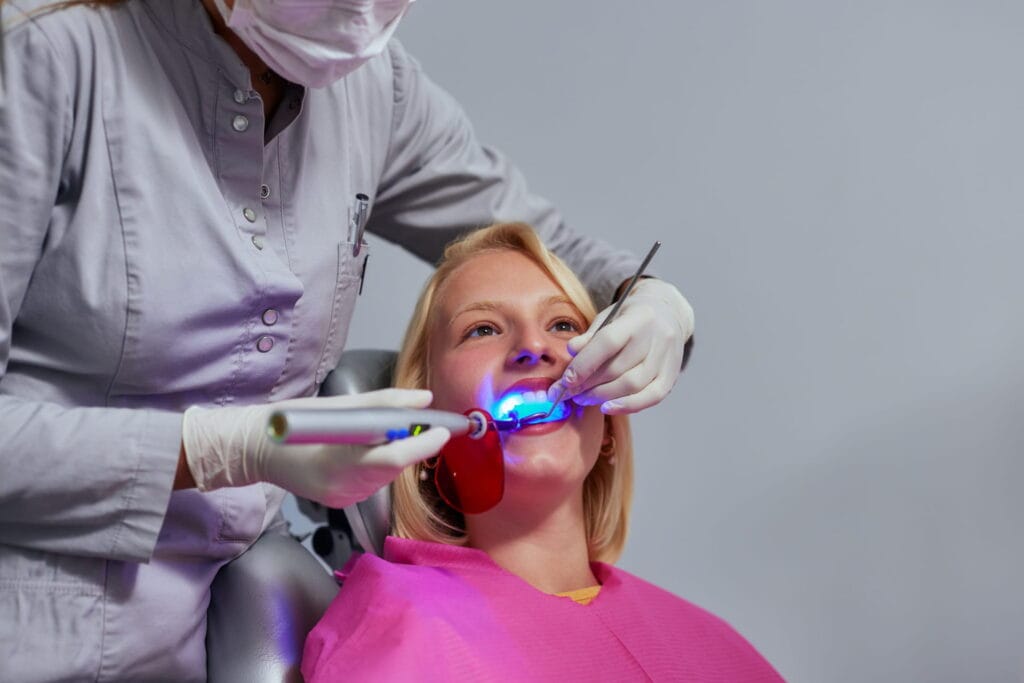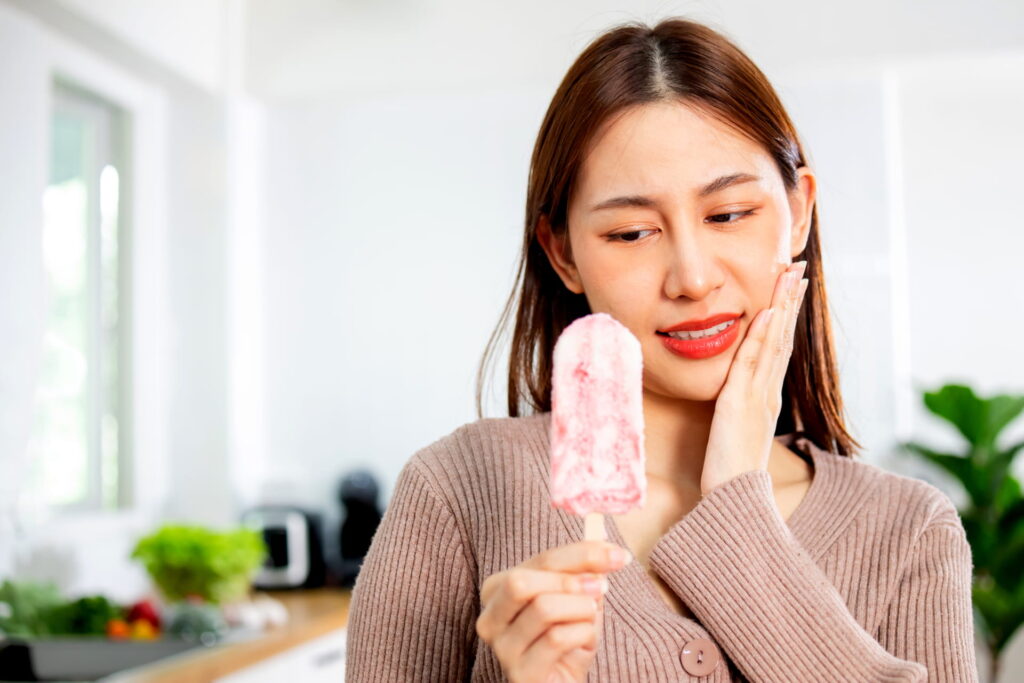A sip of ice water or a taste of hot tea should feel refreshing, not painful. Yet for many, these drinks come with an unexpected jolt that feels like it shoots straight through the jaw. This kind of temperature-triggered discomfort isn’t random. There are real explanations for why cold or hot drinks hurt your teeth, and several of them may be happening all at once.
Why teeth react to hot and cold drinks
Someone enjoys their morning coffee every day without issue, then one day it stings like never before. That sudden change is what leads most people to ask their dentist what’s happening. It’s not just about the drink. It’s often a symptom of something developing over time.
1. Tooth enamel thinning causes pain
Enamel doesn’t regenerate. Once it wears down, teeth become vulnerable to outside forces like cold air or hot drinks. Acidic foods, chronic reflux, and frequent consumption of soda or sports drinks can wear it away.
- According to the CDC, around 30% of adults have some form of enamel erosion
- Dentin beneath enamel is much more sensitive to temperature
- Enamel loss can also come from brushing too hard or using abrasive toothpaste
2. Gum line recession tooth exposure
Gums serve as a natural barrier. When they recede, the root surface underneath lacks the protection needed to block out sensations from hot or cold. This part of the tooth isn’t covered by enamel, which explains why it feels so different.
- The National Institute of Dental and Craniofacial Research links gum recession with periodontal disease
- Smoking and poor oral hygiene increase the risk
- Pain often worsens when sweet, cold, or hot substances touch the root
3. Cracked tooth temperature sensitivity
Teeth can crack from grinding, biting hard foods, or even sudden temperature shifts. When that happens, pathways form that lead directly to the pulp. Even small cracks can feel intense when exposed to cold or heat.
- Cracks don’t always cause constant pain
- The American Association of Endodontists notes that cracked teeth often need root canal treatment if left untreated
- The pain might only appear when chewing or drinking very hot or cold liquids
4. Recent whitening sensitive reaction
Teeth whitening works by penetrating the enamel to lift stains. That process, while effective, temporarily weakens the enamel surface and can irritate the nerve endings beneath. For many people, sensitivity spikes during or right after treatment.
- Hydrogen peroxide and carbamide peroxide are the most common whitening agents
- The American Dental Association recommends limiting use to once every few months
- Overuse of whitening products increases enamel porosity and discomfort

5. New dental work temperature pain
Fillings, crowns, and cleanings can all trigger short-term sensitivity. This usually happens when the procedure disrupts or exposes part of the dentin layer. While this kind of pain typically fades, it can feel sharp right after the appointment.
- Deeper fillings are more likely to irritate nerves temporarily
- Dental cleanings may remove tartar shielding sensitive spots
- Crowns can slightly alter bite pressure, increasing temperature sensitivity
6. Tooth nerve inflammation from decay
Cavities grow silently. By the time they reach the dentin or pulp, pain often arrives alongside them. Sensitivity to heat or cold might be the first warning sign that the nerve is inflamed.
- The CDC reports that 1 in 4 adults have untreated cavities
- Decay allows bacteria to reach nerves, leading to inflammation or infection
- Persistent sensitivity may indicate the need for more involved dental care
7. Aggressive brushing wears enamel
Vigorous brushing doesn’t clean better. It wears enamel and irritates the gums, especially when combined with stiff bristles. That leaves teeth exposed to everything from air to extreme temperatures.
- The ADA advises using soft-bristled brushes and gentle pressure
- Electric toothbrushes with pressure sensors help reduce overbrushing
- Brushing side-to-side along the gum line can cause recession
How these issues work together
Each reason brings its own challenges, but they often overlap. Someone might have gum recession and also use whitening strips too often. Another might grind their teeth at night and brush too hard in the morning. Identifying the trigger means looking at more than just the drink itself.
Hot or cold sensitivity isn’t always permanent. Many causes can be managed with consistent care, new brushing techniques, and sometimes changes in diet or lifestyle. But when sensitivity shows up suddenly or sticks around, that’s usually a sign something deeper needs attention.

Key takeaways for 7 Explanations for Why Cold or Hot Drinks Hurt Your Teeth
- Enamel wear is one of the most common causes of thermal sensitivity
- Gum recession exposes sensitive root surfaces that react to temperature
- Dental procedures and whitening treatments often cause short-term pain
- Cracks, cavities, and nerve inflammation may signal more serious problems
- Addressing multiple factors is often necessary to ease discomfort
FAQs about cold or hot drinks hurting your teeth
Can a tooth hurt from both hot and cold? Yes. If a nerve is inflamed or exposed, it can respond painfully to both temperature extremes.
Why do only my front teeth react to cold drinks? Front teeth have thinner enamel and are more exposed during sipping, making them more reactive.
Is it bad if sensitivity comes and goes? Not always. Fluctuating pain may be tied to behavior or habits, but persistent or worsening symptoms should be evaluated.
Can stress cause tooth pain with hot or cold drinks? Indirectly, yes. Stress often leads to clenching or grinding, which wears down enamel and exposes sensitive layers.
Does toothpaste really help with temperature sensitivity? Yes. Desensitizing toothpaste blocks nerve pathways over time, but it may take several weeks to be fully effective.

